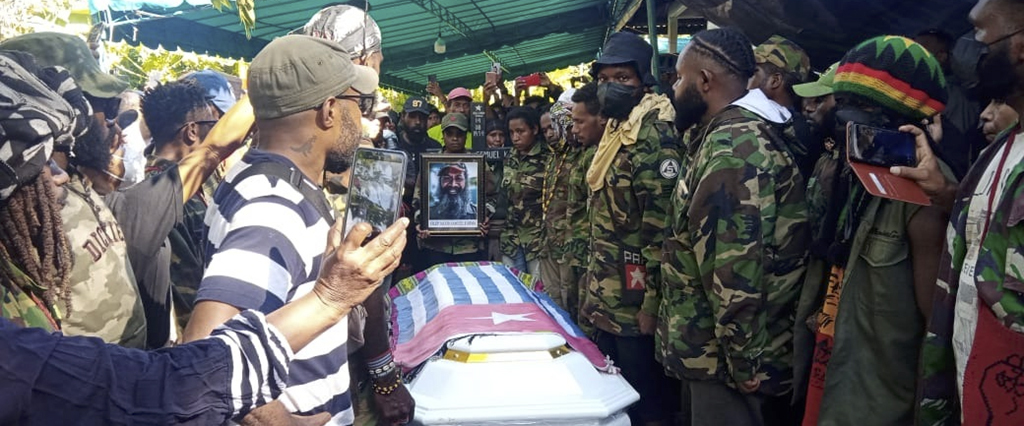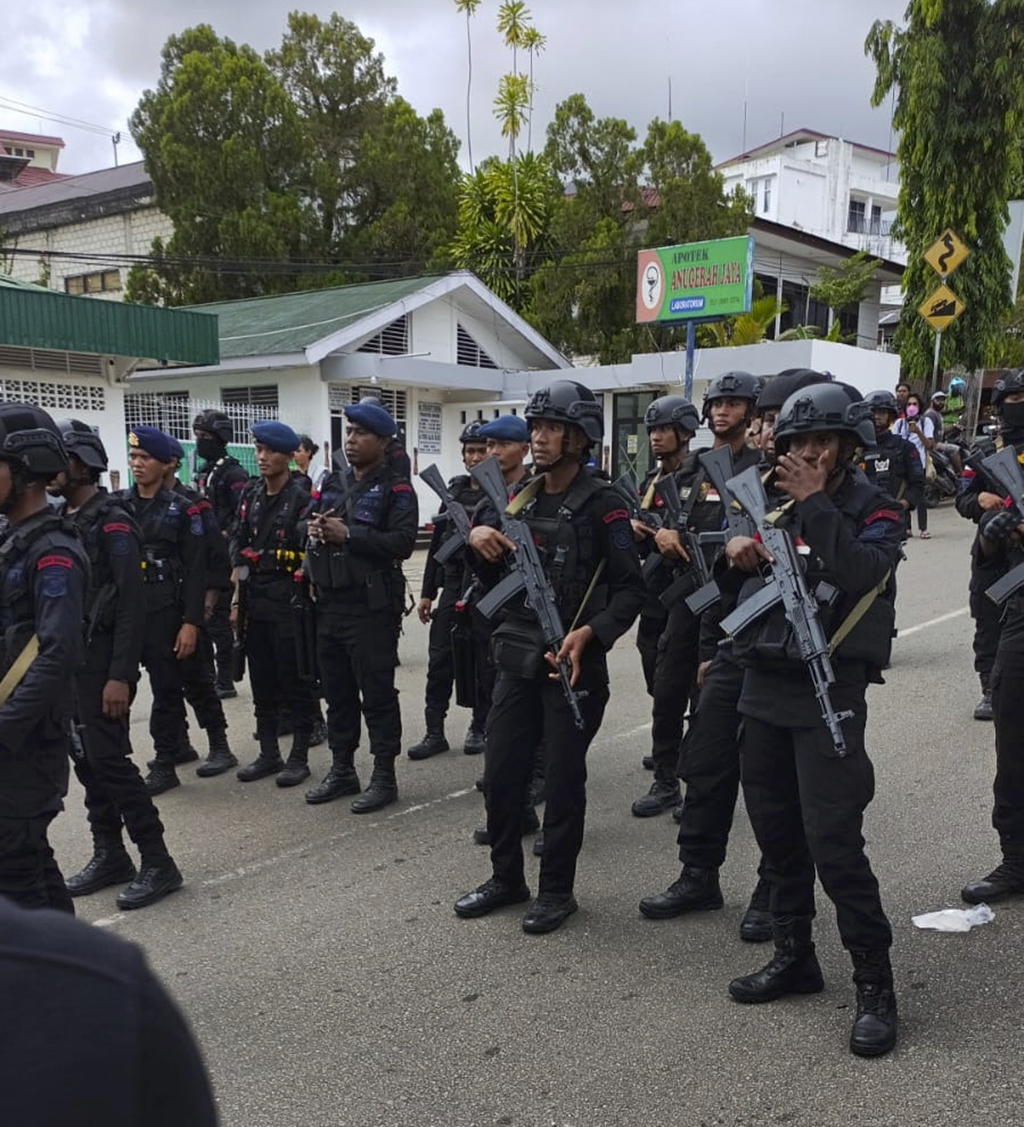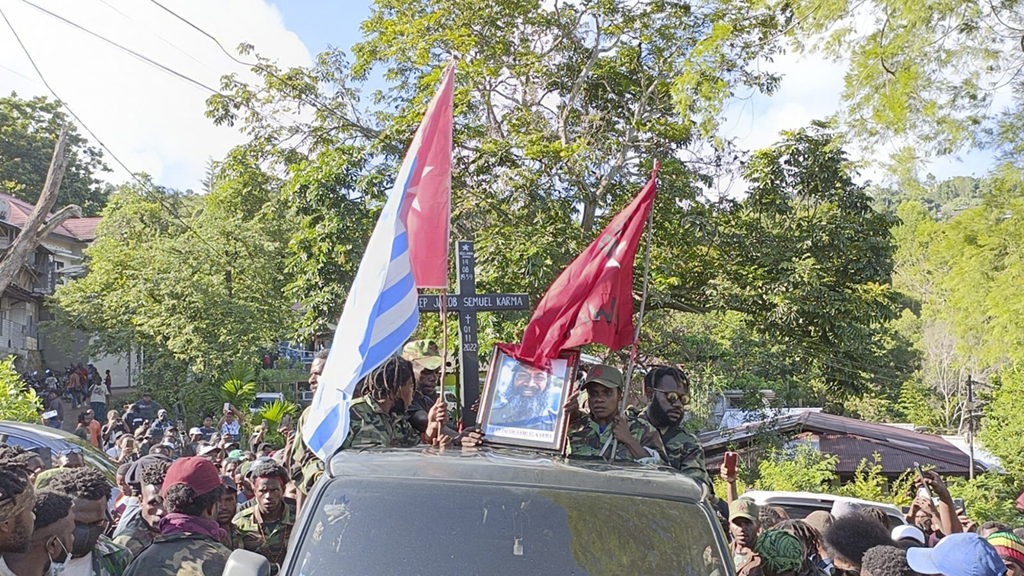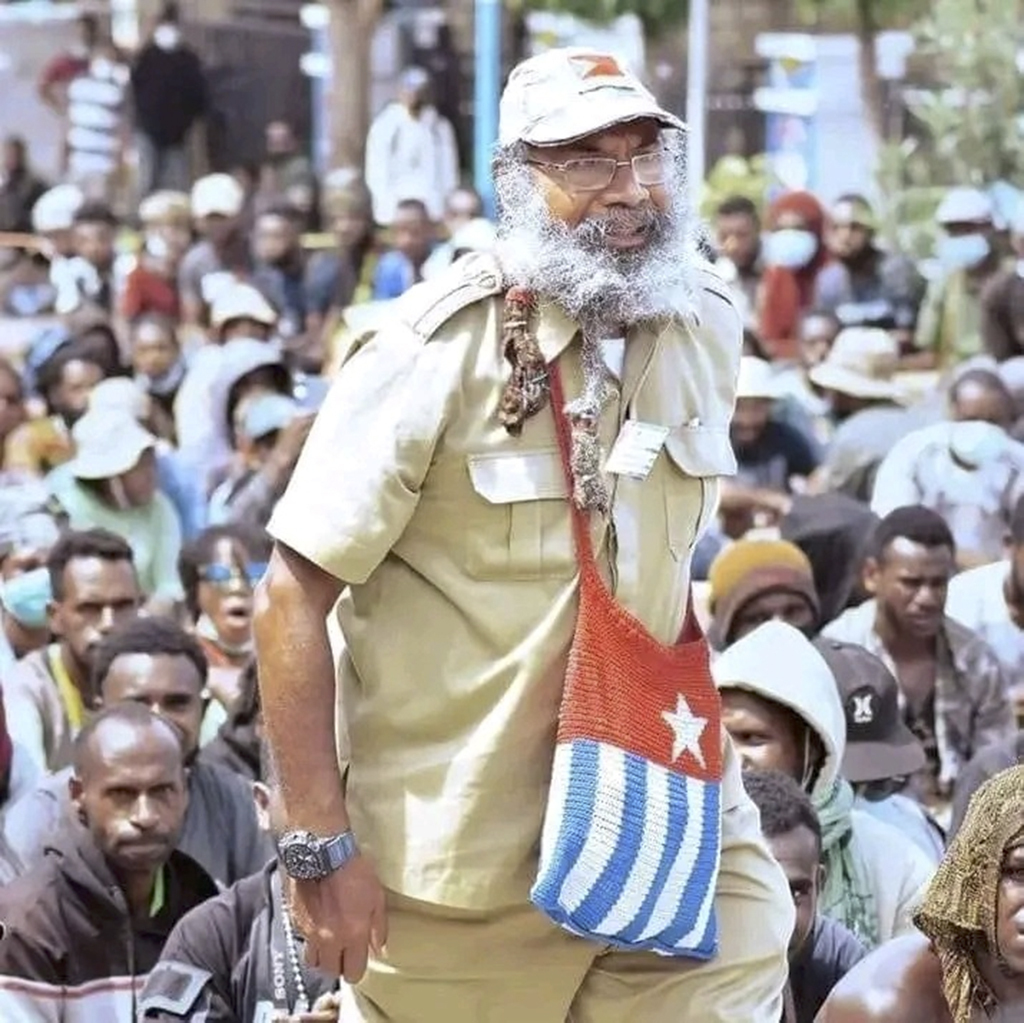
Filep Karma is dead. One of West Papua’s most prominent independence advocates was found dead on November 1, 2022, on Base G Beach, outside of the West Papuan capital, Jayapura. The official cause of death is drowning, and Filep Karma’s body was clad in a diver suit. The official cause of death is disputed by human rights activists.
WEST PAPUA | An avid diver, Filep Karma, 63, appears to have been caught by currents and never managed to return to the surface. The fatal diving accident, though, has aroused many questions among experienced West Papuan independence activists. Filep Karma was under constant police surveillance and didn’t set out on his fatal diving trip alone, which makes it difficult to believe that the independence activist died without anyone observing the turn of events.
Raki Ap is the spokesperson for Free West Papua Campaign and resides in the Netherlands after his father, a prominent West Papuan anthropologist, was murdered by the Indonesian military in the 1980s.“
The death of Filep Karma must lead to a thorough and independent investigation, if his family so wishes,” he tells Magazine Global.
Shaken grassroots
The death of Filep Karma, nonetheless, strikes down hard on the West Papuan independence movement. Sophie Chao, an anthropologist and the writer of “In the Shadow of the Palms,” a book about the oil palm bonanza’s devastating environmental impact on West Papua, underlines Filep Karma’s dedication to the Papuan people’s quest for dignity and equal treatment from the Indonesian authorities.
“He was a tireless fighter in his condemnation of Indonesian racism and occupation,” she tells Magazine Global.
“He was a father figure for West Papuans and respected by many Indonesian people. He was gentle, loving, courageous, and full of wisdom. Grassroots are shaken,” tweeted Veronica Koman, Indonesian human rights lawyer in exile.
“West Papua comes together”
No doubt West Papua’s independence movement has lost an experienced and uniting father figure, and just how long Indonesian authorities will continue to allow any collective mourning of Filep Karma remains to be seen.
“People in West Papua have come together to praise Filep Karma, and we won’t allow his death to fall into silence,” says Raki Ap.
Filep Karma grew up in an occupied West Papua, and he died in an equally occupied ditto. Born in 1959 in then Dutch New Guinea, and the son of a highly educated civil servant who served in the Indonesian political apparatus, Filep Karma got to know various parts of West Papua. From an early age he listened to people’s hardships during the Indonesian dictatorship, led by General Suharto between 1967 and 1998.

Short-lived West Papuan “Perestroika”
In the late 1990s, Suharto’s dictatorship fell. It opened the door for various independence movements throughout the Indonesian archipelago; in 1999 Timor-Leste won independence after 25 years of Indonesian occupation, and a few years later Indonesia’s westernmost province Aceh was granted political autonomy.
The political “Perestroika” also befell West Papua — but merely on paper.
The reality, on the other hand, continued to be a living nightmare for ordinary West Papuans, marred by widespread torture, repression, land grabbing, and a never-ending exploitation of natural resources, such as gold, copper, and timber.
Prison and torture
The first time Filep Karma was sentenced to a long-term prison sentence was in July 1998, when he participated in a flag-raising ceremony of the Morning Star. An act of nonviolence that culminated in a bloody massacre that claimed at least one hundred lives due to circumstances that in large remain unclear and subject to compact political silence from Indonesian authorities in Jakarta.
Having served ten months in jail, he was released after a successful appeal and thanks to pressure from Human Rights Watch, which condemned Indonesia for politically motivated prison sentences against West Papuan independence activists.
Filep Karma’s second prison spell occurred after another flag-raising ceremony — this time in December 2004 — only this time the sentence was a ten-year-long prison stay.
Amnesty in 2015
Despite being denied medical care and numerous occasions of torture, Filep Karma remained true to his non-violence advocacy in the quest for West Papuan independence.
In 2015, the current Indonesian President Joko Widodo granted him amnesty, and in his book “As if we are half-human” Filep Karma questions the true nature of democracy, as West Papuans are subjected to a kind of economic and political apartheid with the support of the Indonesian rule of law, while the country is hailed for its democratic progress since the fall of Suharto.
“Papuans are not accused of being communists, but separatists, which means traitors, enemies of the state, a threat to the state and must be exterminated,” he states in his 2014 book.

A brutal murder
According to Filep Karma and another influential West Papuan independence leader — Theys Eluay — the accusation of “separatism” is rooted in a hollow and historically incorrect abyss. The West Papuan people’s demand for independence can never, they argued, be called “separatism” as they never voluntarily tied any chains to the Indonesian motherland.
On November 10, 2001, Theys Eluay attended a dinner in Jayapura, hosted by Indonesian military and local politicians. At 10 p.m. the regional officer of the Indonesia’s notorious special army unit Kopassus grabbed a microphone and called out, “Good night, Papua’s great leader! Have a safe journey home!”
But Theys Eluay never made it back home. A vehicle consisting of Kopassus soldiers had been following the West Papuan along the dark road. Three days later, Theys Eluay’s body was found, he had been strangled to death. Nevertheless, Indonesian authorities claimed stroke to be the cause of death — a later disproved conclusion as four Kopassus soldiers were convicted of murder.
Strange deaths
Theys Eluay is not the only West Papuan leader to die in the hands of Indonesian authorities. Philosopher and “separatist” Thomas Wainggai died in a Jakarta prison, in 1996, where he served a 20 years in prison for “subversion.”
Mere days prior to his death, Thomas Wainggai had complained of severe stomach pains, and he feared having been deliberately poisoned. Voices from inside the prison, however, quickly put forward heart attack as the cause of his death.
Planted circumstances surrounding the deaths of West Papuan leaders ultimately serve Indonesian interests and succeed in getting rid of disaffected independence advocates. Indonesia’s systematic repressive treatment of West Papuans in general — and of independence activists in particular — has given rise to widespread skepticism towards any Indonesian conclusions regarding deaths of West Papuans. Filep Karma’s death on November 1, 2022, is no exception.

“Unclear circumstances”
There are photos showing Filep Karma in the company of Indonesian military and police personnel, leaving for the fateful diving voyage, and why he would voluntarily hang out with the same people that over the years have done nothing but oppose his ultimate goal — an independent West Papua — is hard to fathom.
“There are so many circumstances that remain unclear,” a human rights activist, who wishes to remain anonymous, tells Magazine Global.
Furthermore, Magazine Global has come across testimonies that describe police pressuring relatives to Filep Karma, and thus influencing statements and witness accounts. The vehicle transporting Filep Karma’s body was also stopped on several occasions during the drive from the Bhayangkara hospital to his private house in Waena, outside of Jayapura.
Morning Star in Jayapura
In the end, nothing changes the fact that West Papua’s equivalent of the South African freedom fighter and later historical president Nelson Mandela is dead.
One of the planet’s last true colonies of the twentieth century has lost a unifying force between armed guerrilla groups and non-violent resistance movements, and the icy cold wind of history blows ever harder over the occupied western half of New Guinea.
“So much is reminiscent of Theys Eluay’s death in November 2001,” the human rights activist tells Magazine Global. “In that case, it took several years for the truth to be revealed. Let’s hope it doesn’t take as long in this case.
”West Papua’s Morning Star kept Filep Karma company during his last journey through Jayapura. The flag was attached to the vehicle that carried the independence activist’s body through streets that were crowded with mourners, chanting songs of freedom, verses of hope.
* * *
FURTHER READING:
Total warfare “imminent” in West Papua – PNG dragged into the conflict
Major protests in West Papua – despite Indonesian pledge of violence
Swedish pension fund invests in Wabu Block, West Papua


